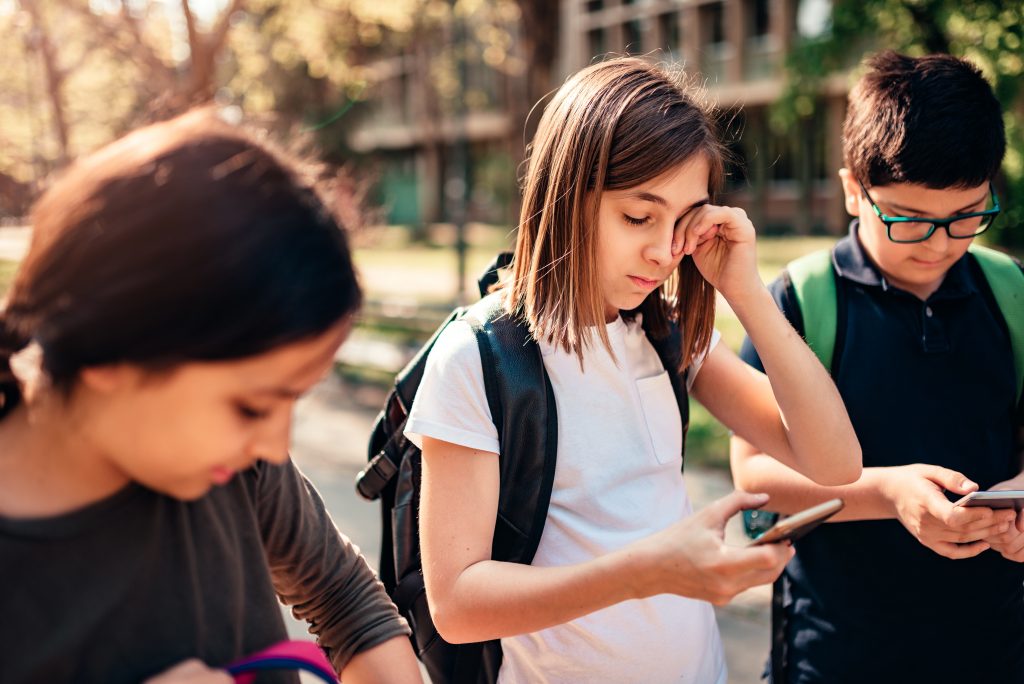Child Eye Irritation Causes, Treatment and When To Call the Eye Doctor

Most instances of eye irritation in children are harmless. Irritated eyes can stem from everyday situations like dirt particles getting trapped under the eyelid or getting soap in the eyes. However, there are some situations where irritation in a child's eye is more serious, like a sign of infection or needing to be treated by an eye doctor.
Signs of Eye Irritation in Children
No matter the child's age, children usually express that their eyes are irritated through their actions. Additionally, certain visible signs may indicate irritation. A few signs to watch for as a parent include:
- An increase in tears or watery eyes
- Blinking more often
- Rubbing the eyes
- Complaints of itchiness, stinging or discomfort
- Swollen eyelids
- Light sensitivity
- Redness or pinkness of the white parts of the eye
How To Treat and Prevent Eye Irritation
Prevention goes far when it comes to eye irritation in children. By making a few adjustments to everyday habits, you may be able to negate the problem.
Be Careful During Screen Time or Reading
Make sure your child is taking frequent breaks during screen time or reading. When a child watches a screen or is focused intently, they can forget to blink often enough to keep their eyes cleared. This alone can lead to irritation.
Protect the Child's Eyes From Environmental Irritants
If your child frequently has issues with eye irritation and you suspect something in the environment is to blame, do what you can to mitigate the cause. For example, keep the child away from smoke and avoid using aerosols indoors.
When outdoors, ensure the child has sunglasses that wrap around their face to prevent exposure to wind, wind-blown particles and the sun. Using a humidifier in the child's room may also help, especially if irritation is due to indoor dryness.
Be Mindful of Contact Lens Use
If you have a child that usually wears contact lenses and is dealing with irritation, make sure they are using the moisturizing solution as they should and changing their contacts as recommended. Switching to glasses can also be a good idea until the irritation subsides.
Talk to Your Child's pediatrician About Medications
Some prescription medications can cause dry eye or eye irritation. If you suspect this is to blame, continue to take medications as prescribed, but contact Gulf Coast Vision Center for advice.
Consider Artificial Tears or Lubricating Eye Ointment
Artificial tears may curb eye irritation and can be used up to four times a day. If you're using the drops four times daily with no improvement or the child needs more frequent drops, opt for artificial tears with no preservatives. The preservative-free products are less likely to cause irritation. You can also use a lubricating eye gel or ointment at bedtime, which lasts longer than liquid artificial tears. Therefore, you can use the product less.
To apply ointment or eye drops in a child's eyes:
- Encourage the child to tilt their head slightly back
- Use a finger to pull the lower lid away from the eye
- Put the ointment or drops between the lid and eye
- Instruct your child to hold their eye closed for at least 30 seconds to let the product coat the eye
- Always avoid touching the tip of a dropper or bottle to the eye, the lid, or the eyelashes
Schedule an appointment for child eye irritation.
Common Causes of Eye Irritation
Eye irritation is often a minor issue, but the severity of the situation can also depend on the root cause. Some typical causes of eye irritation in children include:
- Conjunctivitis (Pinkeye)
- Eye styes
- Allergies
- Foreign matter in the eye
- Blepharitis (oil gland infection that creates inflammation caused by bacteria or issues with oil production in the eyelid)
- Exposure to chlorine, smog, smoke, or aerosols
Irritants that make their way into a child's eyes often get there by accident when they transfer spice from food, pet hair, sunscreen, insect repellant or plant particles into the eye with their hands.
When Should I Contact My Eye Doctor?
While most occurrences of eye irritation in children will pass on their own, some situations should spur you to contact an eye doctor for advice or an appointment. You should contact an eye doctor if:
- Your child is complaining about trouble with vision
- The child has been exposed to potentially harmful chemicals
- You can see something embedded in the surface of the eye
- The child is complaining of eye pain
- You can see blood collecting on the surface of the eye
- The child is experiencing either nausea or vomiting with an injury to the eye
Talk to an Eye Doctor About Concerning Child Eye Irritation
If your child is dealing with ongoing eye irritation, reach out to Gulf Coast Vision Center to schedule an appointment in Pace, Milton or Crestview or at one of our Pensacola locations at Nine Mile or East Hill.
